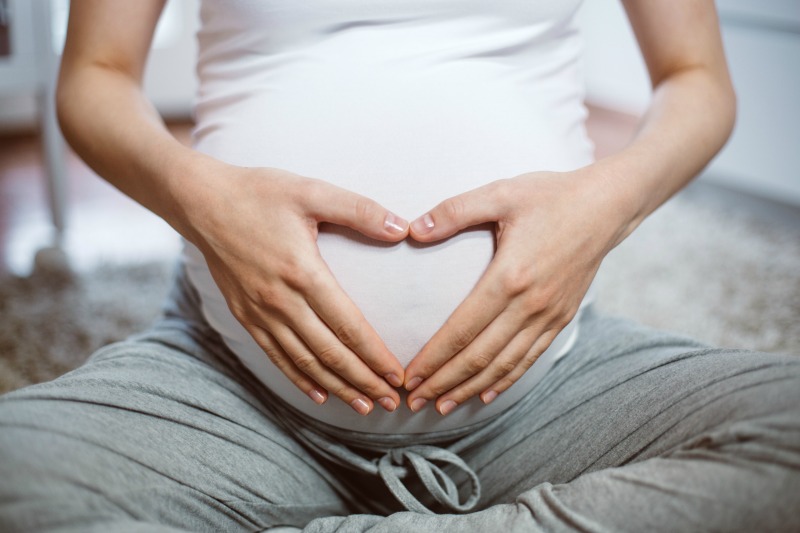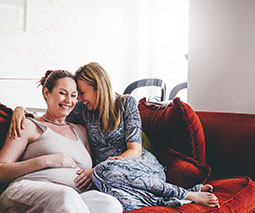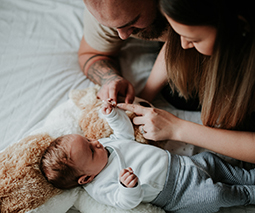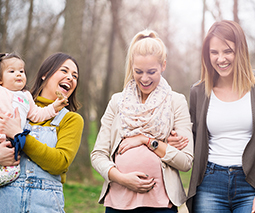Baby number 2: How soon should I wait to have another child?

A common question mothers ask is: how soon should I wait before I have another child?
Big vs small gap?
With so much conflicting information on this topic, it’s hard to know if it’s best to leave a big gap or a smaller one. And there is no shortage of opinions on either! Many women vouch for a smaller age gap between kiddos in the hopes that they might have more in common with each other, other mothers prefer to leave it a while longer and wait till their firstborns are toddlers before they try for round two. And some women leave it up to fate to decide!
As it turns out, science may have the answer after all.
In new research from the University of British Columbia (UBC) and the Harvard T.H. Chan School of Public Health in America, 12 months may be all a mother needs to wait before she attempts to conceive again safely.
Read more about conception:
- The truth is, there is no perfect time to have a baby
- How long can it really take to fall pregnant?
- Trying to conceive? Diet dos and don’ts for baby-making
The study, published in the JAMA’s Internal Medicine journal, found the risk of serious health issues, which affect both mother and child, were higher for women who chose to get pregnant only six months after giving birth previously, compared to women who decided to wait for at least 12-18 months.
In this very comprehensive study, researchers combed their way through the results of 148, 544 documented pregnancy records in British Columbia for women between 2004 and 2014. They also took into account women’s ages to ascertain whether they might be at a higher risk.
What they found
According to their research, 85 out of 1,000 women between the ages of 20 and 34 years of age – who conceived only six months after their last baby – had premature births. What the researchers found was that the risk was significantly lower (down to 37 out of 1,000 cases) for the women who decided to wait at least 18 months.
Laura Schummers, the lead author of the study and a postdoctoral fellow at UBC’s department of family practice, stated that her research disproved the assumption that bigger spaces were better for women.
“Our findings indicate a shorter optimal interval than previously thought (12-24 months) for women of all ages,” she said.
In fact, the study found that the risks between 12 and 24 months were basically the same as the risks present at 18 months.
Laura added that women aged 35 years and older often plan to space their pregnancies closer together.
“Because pregnancies following short interpregnancy intervals among women 35 years or older at index birth are usually planned, clinical counselling toward intervals closer to 12 or 18 months may be effective in reducing the risks that we have shown are still associated with short intervals among older women,” she said.
Although the researchers of this study believe their findings may offer “new, robust evidence” that can be used to guide specialists supporting women who are considering smaller spaces between their pregnancies, Laura agreed that a woman’s decision regarding timing and spacing was “multifactorial” and required the consideration of other contributing factors.
She’s got that right, for sure!
We all know that there is no “perfect time” when it comes to having babies. But this new research might comfort you to know that a smaller age gap might not be such a bad idea. And in fact, it might actually be the way to go – if you can get your head around having lots of small babies underfoot.









